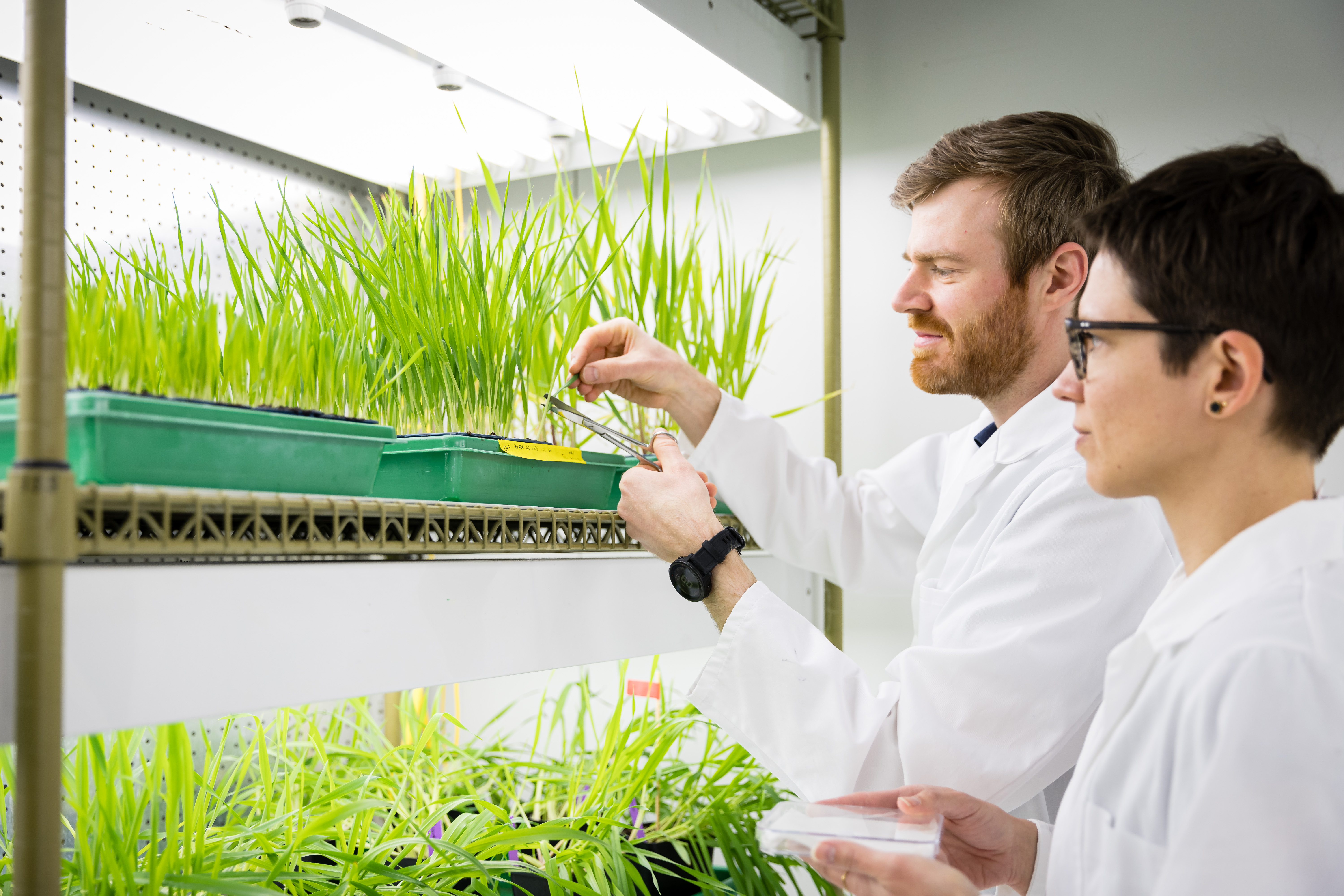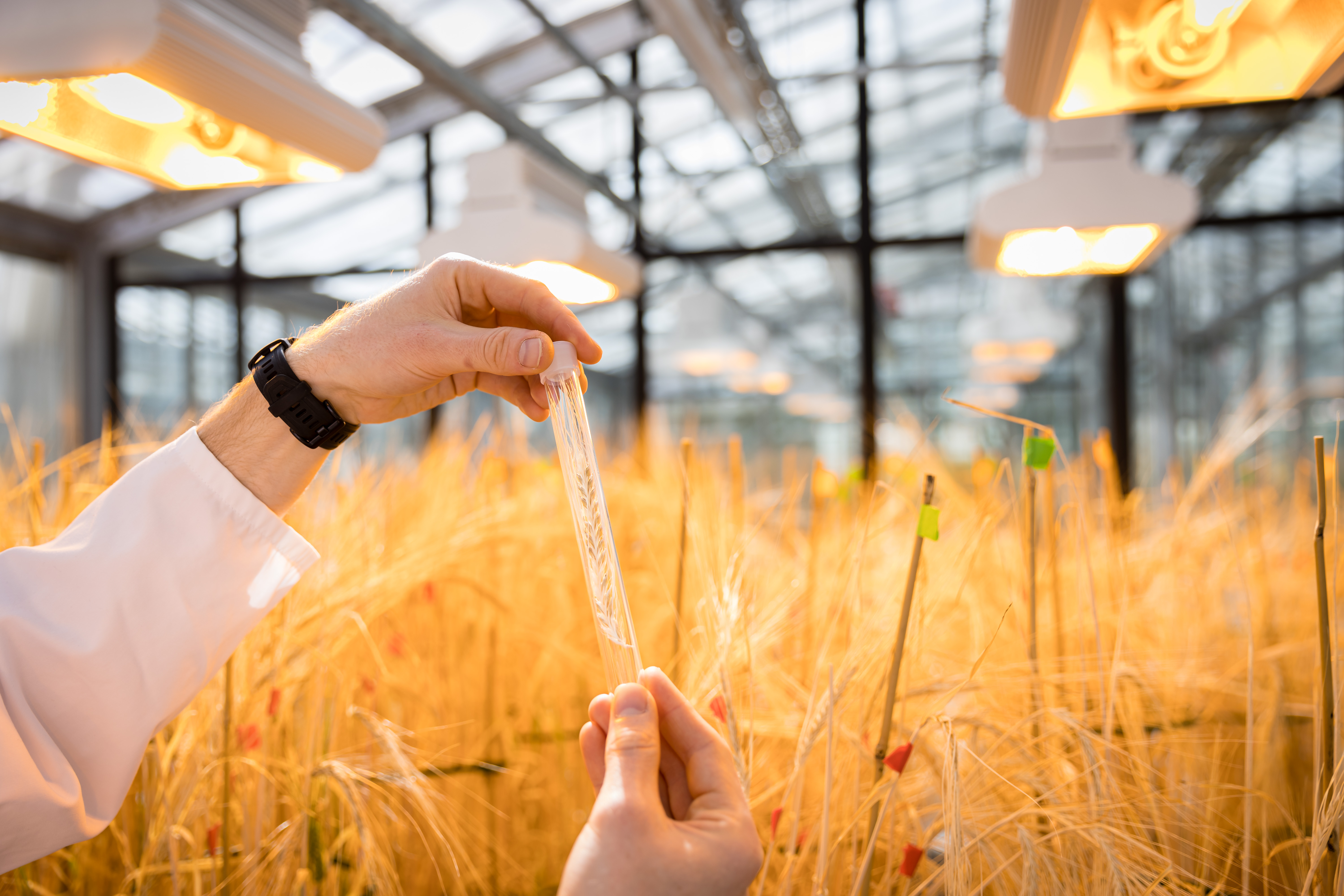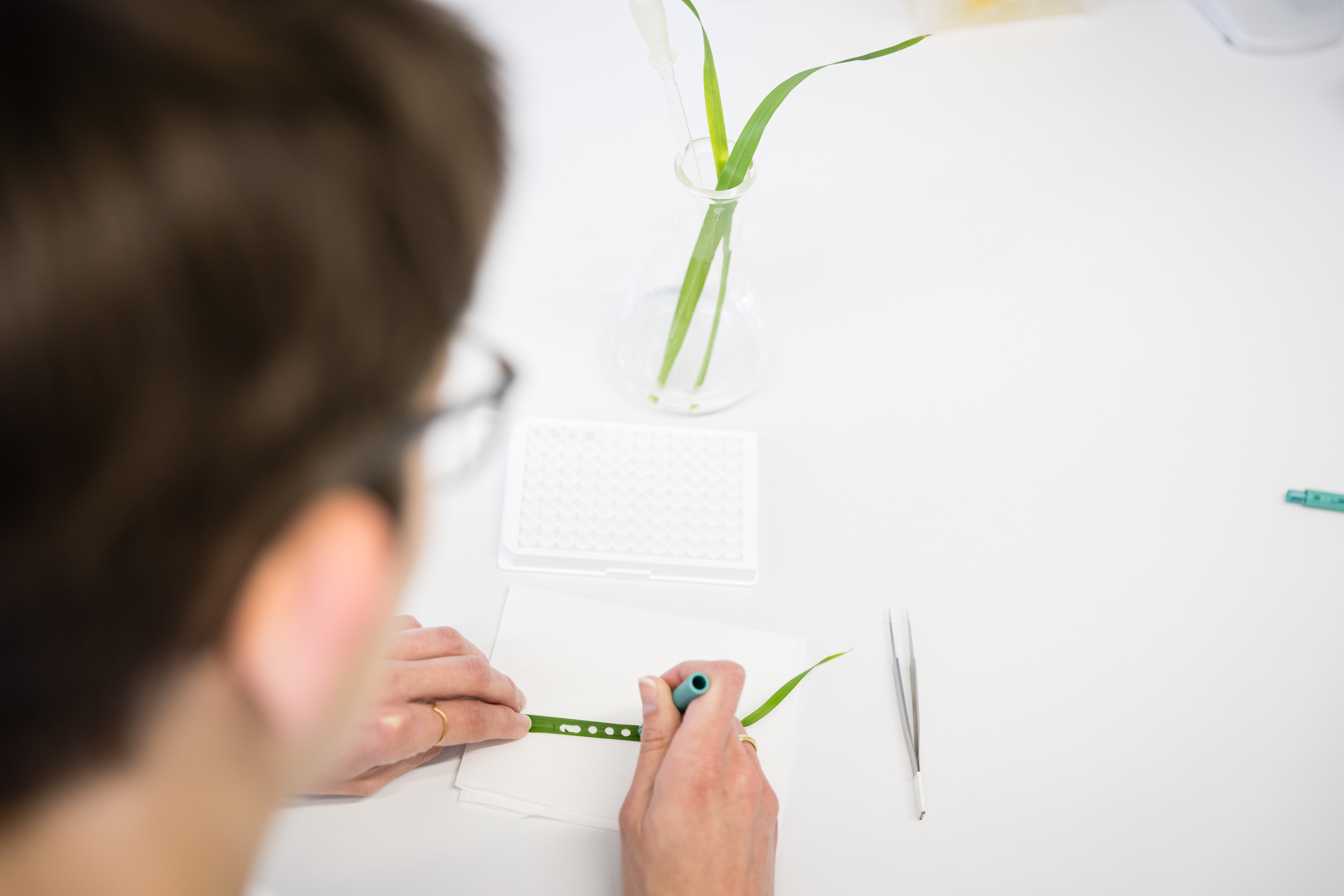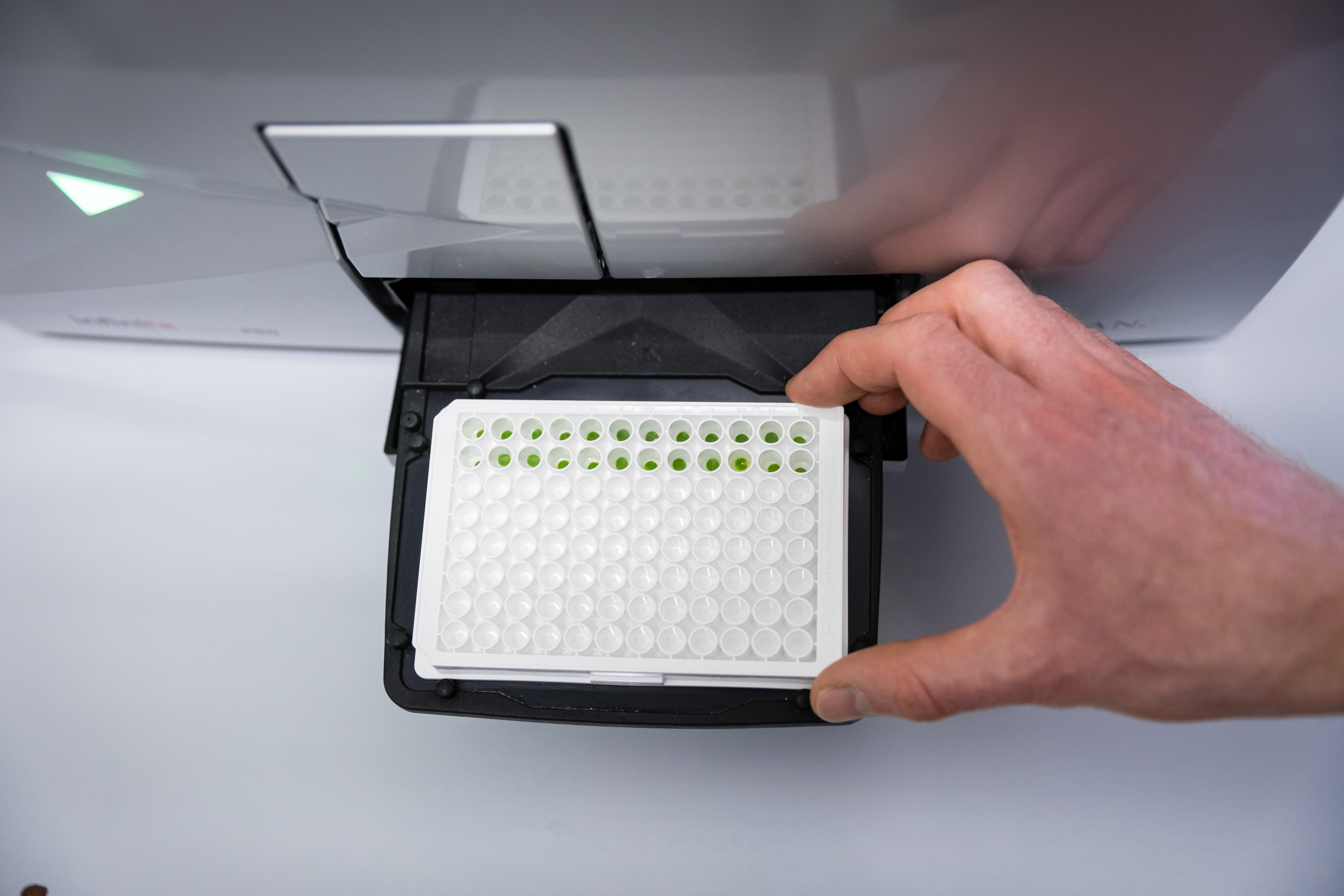SP 6: Protection of barley from fungal diseases in drought conditions

Project manager: Prof. Dr. Ralph Hückelhoven
Scientific staff: Felix Hoheneder
ln a variable climate, crops are often exposed to multiple stressors simultaneously. Climate change-induced extreme weather conditions such as long lasting droughts threaten barley production worldwide and can promote soil-borne diseases. The goal of this project is it to better understand complex stress responses of spring barley and to develop tools, which support breeding for a sustainable barley production under variable climatic conditions. Quantitative resistance of barley to Fusarium Head Blight under drought stress will serve as a model. Fusarium Head Blight threatens the quality and quantity of barley and malt production in Bavaria and worldwide. More frequent drought stress due to the climate change may increase the susceptibility of barley to the disease. The stress response of preselected barley cultivars to Fusarium species, climate/drought stress and their combination will be recorded and described in detail via physiological parameters and gene expression patterns.
The analysis of the data will identify metabolic pathways and single marker genes, which are associated with resistance or susceptibility of barley to Fusarium Head Blight in an environmentally stable manner. Marker genes will be validated for their ability to reflect resistance to Fusarium Head Blight in a current barley genotype assortment. In a parallel effort, we will optimize the use of immunogenic pathogen molecules (biologicals) in barley and investigate the interaction of biological-responses with the barley genotype and drought stress. Eventually, model experiments in the field shall test, whether a combination of little susceptible barley with the application of biologicals can serve sustainable plant protection in a changing environment.
Poster kick off meeting (German)
Project description kick off meeting (German)
Final Event
Poster Project description Final report
(German language only)






